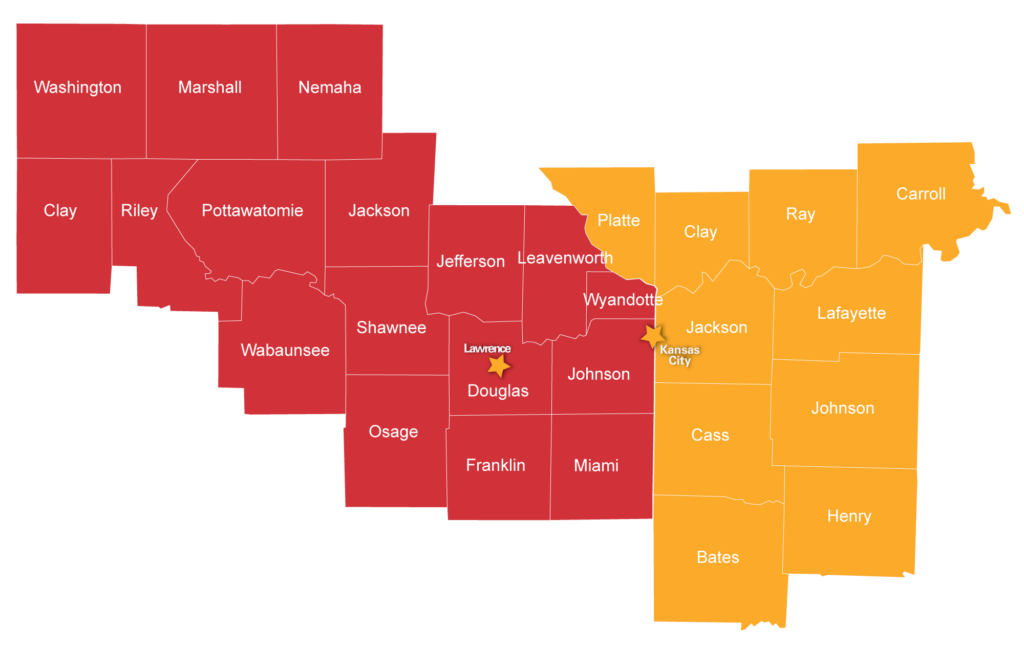Hunger in our Region
Hunger exists in every county in our nation. In Kansas and Missouri, there are people experiencing food insecurity in sparsely-populated rural counties, suburban communities and urban centers. Before the COVID-19 pandemic began, food insecurity was at the lowest point seen since before the Great Recession of 2008. The pandemic increased food insecurity significantly in 2020, and the numbers have continued to rise even higher since.
What Does it Mean to be Hungry?
Food insecurity is defined as a lack of consistent access to enough food for every person in a household to live an active, healthy life. There may be enough for today, but there is uncertainty if there will be enough food for tomorrow. This can be a temporary situation for a household, or it can last a long time.
What Causes Food Insecurity?
Many people in America struggle to meet their basic needs. Lay-offs at work, unexpected car maintenance, health issues or an accident on the job can suddenly force a family or senior to choose between buying food and paying bills.
What are the Effects of Food Insecurity?
- Serious health complications, especially when people facing hunger are forced to choose between spending money on food and medicine or medical care
- Damage to a child’s ability to learn and grow
- Loss of independence for seniors who rely on food access to stay in their homes
- Reduced ability for adults to focus at work and keep their jobs

In Harvesters’ 27-county service area:
1 in 7 (13.6%) people
are at risk of hunger.
That’s 13.6% of the population or 374,900 individuals.
1 in 6 kids are
at risk of hunger.
That’s 17.1% of the population or 110,240 children.

Data comes from Feeding America’s Map the Meal Gap Study and reflects data collected in 2023.
To learn more and see how hunger impacts your county, see Feeding America’s interactive food-insecurity map.
Who Does Harvesters’ Network Serve?
Harvesters’ network of pantry partner agencies feeds 226,000 people every month.*
- 35% are children
- 15% are seniors
- 61% have at least one adult in the household who has worked in the last year
- 9% are living in temporary housing or are houseless.
- 57% are White, 16% are Black, 20% are Hispanic and the rest are from other racial and ethnic groups
Learn more about who Harvesters serves by downloading the key local findings or full report for our service area from the University of Missouri Interdisciplinary Center for Food Security’s Food Assistance and Hunger in the Heartland 2021.
*This study measured neighbors who are served at food pantries and mobile distributions in Harvesters’ network. It did not measure neighbors served at network community kitchens and shelters or at after-school, summer or weekend feeding programs for children.